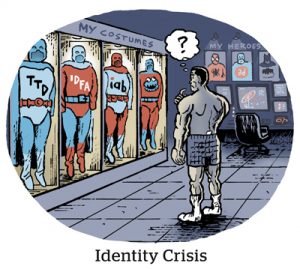 Here’s today’s AdExchanger.com news round-up… Want it by email? Sign up here.
Here’s today’s AdExchanger.com news round-up… Want it by email? Sign up here.
Programmatic Pushback
The news company Quartz released a memo on Thursday laying out an anti-programmatic stance on advertising. “In a bygone era, advertisers wished to align with and support what they perceived as quality content,” writes Quartz publisher Jay Lauf. “That idea has eroded as advertising moved away from buying and supporting specific media to buying target audiences through automated auctions that aggregate hundreds of thousands of websites in order to make buying those audiences more efficient.” To buy on Quartz, advertisers work directly with its sales team on units custom-built for the site. “The commercial team at Quartz has been very deliberate about not working with these automated advertising exchanges because we know it erodes the user experience and the trust you put in us,” Lauf writes. Read it.
Update 12/22: Lauf issued a statement to AdExchanger clarifying his stance:
My note to readers is not an indictment of all programmatic advertising. There are a variety of uses of programmatic that have developed in the ecosystem, many of which are effective or innocuous. My focus was on explaining Quartz’s stance against the unfettered use of open exchanges, which are a fraught subset of automated buying, and which have been increasingly under scrutiny. It was also intended as a genuine thank you and call out to the many marketers who still value working directly with quality publishers.
Life’s A Pitch
The agency pitch process is spinning out of control. RFPs now often last at least six months and include up to a dozen agencies. The number of pitches to cover project-based and specialist work is also on the rise, as clients move away from agency-of-record statuses. This year, marketers will participate in roughly 160 media pitches, according to data from Comvergence, and this relentless cycle is pulling talent away from client work – especially at agency holding companies, which overpitch to ensure quarterly growth. “I don’t think any of us have seen it like what it has been over the past 18 months, two years,” one agency exec told AdAge. “Just when you think it couldn’t be more, more comes.” More.
Cleaning House
Google messaged publishers on Wednesday warning that certain vendor files have “XSS vulnerabilities which could pose a security risk.” Here’s what’s going on: Google used to require that vendors generate a cross-domain file to accommodate expandable ad units through iframes. Nowadays, many publishers don’t support that type of ad unit, so the code is pretty pointless. However, that code, which poses a security risk, is hosted on the publisher’s site, which is why Google is telling them to flush it out. Read more.
Glad-Handing And Ad Handling
Major political elections now rank alongside the Super Bowl, the Oscars and the Olympics as ad industry tentpole events. And that fact is further complicating Facebook’s already complicated relationship with politicians and governments. Facebook may be agnostic, but by establishing team-level relationships with political staff it can be hard to disentangle commercial work from political support. Facebook embedded staff with the Trump campaign (as it did with the Clinton campaign). Fair enough. But it has raised eyebrows elsewhere by lending its advertising services to Philippines President Rodrigo Duterte, known for extrajudicial killings, as well as the first successful campaign from a far-right German party since the end of World War II, reports Bloomberg. More.
But Wait, There’s More!
- After Missing 2017 Target, Pinterest Plans Sales Ramp-Up – The Information (sub.)
- Facebook And Universal Music Group Strike Licensing Partnership – release
- Amazon Private-Label Brands Booked Almost $450 Million In Sales In 2017 – CNBC
- Google, Facebook Facing Saturation Of Ad Budgets, Says Pivotal – Barron’s
- It’s Just A Matter Of Time Before Consultancies Unseat Ad Agencies – Digiday
- IAB: Ad Tech Predictions For 2018 – blog
- Apple Revises Controversial Ban On Templated Apps – TechCrunch
- Apple Now Requires Developers To Show Odds For Loot Boxes – Rolling Stone
You’re Hired!













